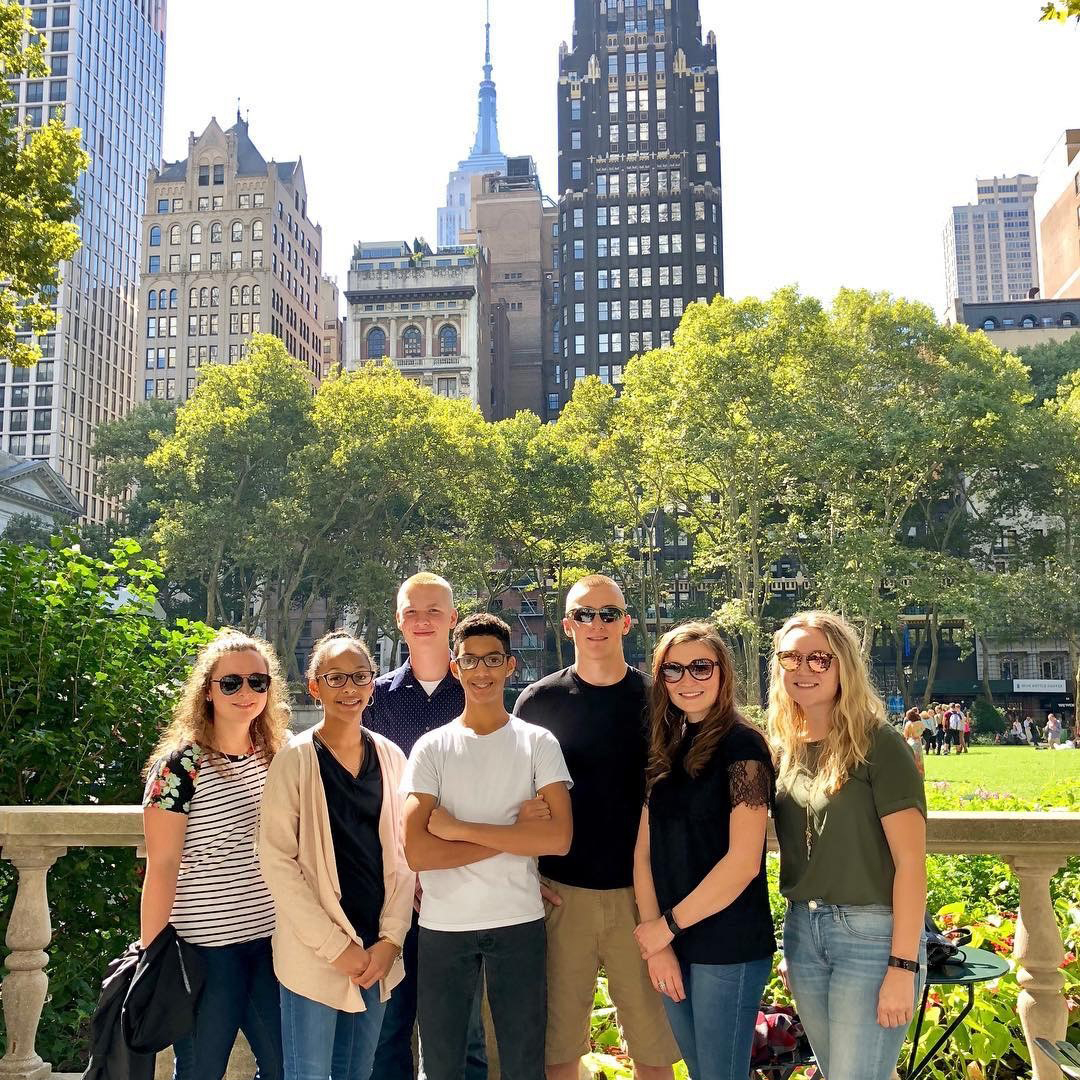Janelle Weaver (’16), a graduate of Lancaster Bible College’s social work program, had her first brush with social services at a young age. Beginning when she was nine years old, her mother and father became foster parents – sometimes called resource parents – and eventually, the family ended up adopting three of the children they housed. Weaver recalls attending her foster siblings’ court hearings, dropping off the children to visit their biological siblings and answering the door as social workers stopped by. She even remembers accompanying her mother to pick up a newborn baby at the hospital in need of a foster family. All of this interaction with social services left an impression on the young Weaver. “I can recall thinking, ‘Maybe someday I’ll be a caseworker, too,’” she said. “These experiences provided me with a baseline knowledge about the foster care and adoptive system. It was my first real exposure to the realm of social work.”
It was many years before a teenage Weaver enrolled in the college’s social work degree, which was actually her backup plan. She’d hoped to study business, but the degree didn’t exist at the college yet. So, she went with her number two option. Still, it seemed fate – or perhaps more appropriately, God – would see to it that she ended up studying at LBC.

Above: Janelle and her family pause for a family portrait on a trip.
Weaver obtained a position as a social worker in the permanency department at the Lancaster Children & Youth Agency, advocating on behalf of children in foster care and reunification – a fitting role that brings that formative aspect of her life full-circle. It’s also provided her with some unique insights into the system. “My personal experiences with the child welfare system in Pennsylvania have helped me to have empathy toward foster families,” explained Weaver. “I’m able to relate to some of what they are going through. For example, I have first-hand knowledge about the increased responsibility that can be placed on the older biological children in the home. I’ve seen how challenging it can be to navigate life as an interracial or transracial family, and the unique dynamic that creates. I know how tough it can be when a family has to request to remove a child from their home – that’s not something everyone can say.” The empathy her experiences have lent her don’t stop with the foster families’ experiences. “It’s also allowed me to have a unique perspective on biological families,” she said. “I have a few memories of some positive interactions between my family and my siblings’ biological families. But I also recall some very tough conversations we had to have about what was in my siblings’ best interest. These experiences have helped me to recognize the importance of nurturing a positive relationship between biological and resource families when possible.”
Working in child welfare can take a toll on employees, and the role social workers play is infamously draining. “Some of the things I encounter throughout my work can be particularly disturbing or upsetting, and those things can build up over time,” she said. “But what keeps me going are the families and kids that I have the privilege to work with – I want to help them work through their challenges.” This, she says, is one of the main reasons Christians shouldn’t shy away from the field. “As social workers, we can tangibly live like Christ. Jesus made a point to minister to the poor, the orphan, the criminal, the lost and the broken. He associated Himself with individuals society has written off as burdensome, unwanted and unworthy. Social work gives you a direct pathway to show Christ’s love to this population and to help them regain a sense of dignity and worth through empowerment.”
Weaver claims that her education at Lancaster Bible College uniquely prepared her for a career as a social worker. “One of the things I really appreciated about my education at LBC is that I was taught all of the values, competencies and skills of social work through a biblical lens,” she explained. “It has provided me with a solid foundation to build upon on in my graduate studies, and the program more than adequately prepared me to enter into an advanced standing clinically-focused program.”
She also was quick to note that interacting with the professors at LBC had a deep impact on her. “I am thankful for the intentionality of the professors, specifically those within the social work department,” said Weaver. “Each one of them truly embodies the tenets of social work in how they interact with their students. They contributed significantly to my personal, professional and spiritual growth.” Weaver says she reaches out to her former professors to this day. “I stay in touch with them and come to them with questions – or call them when I just need to debrief and have a listening ear.”
She also says that faith plays a special role in her job. While she is a government employee and cannot verbally share the Gospel, she’s opted to live out the values of her faith in a way that points to Christ. “The most noticeable way I can share my faith at work is through my actions and how I treat others,” explained Weaver. “I do my best to show God’s love to others, to apologize and ask for forgiveness when I make mistakes and to maintain a positive outlook, despite challenging circumstances. I’ve received feedback from others that this does not go unnoticed and if I’m asked about it specifically, I tell people that my faith is where I draw my joy and strength from.”
